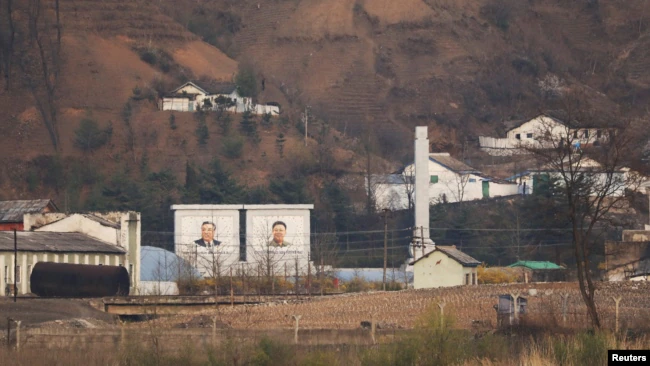This article was originally posted on VOA and translated by OKN Correspondent.
The difficulties and concerns of aid organizations for North Korea due to North Korea’s border blockade have been included in the recently released Panel of Experts report of the UN Security Council’s Sanctions Committee on North Korea. Relief groups pointed out that North Korea’s border closures and delays in customs clearance are now more significant problems than sanctions against North Korea. So-young Ahn reports.
The final Panel of Experts report recently released by the UN Security Council’s Sanctions Committee on North Korea shows that North Korea’s border closure measures still harm humanitarian aid to North Korea.
A panel of experts conducted a survey of 13 anonymous non-governmental organizations (NGOs) in preparation for releasing the report. Concerns about the deterioration of food and health conditions in North Korea were commonly addressed, caused by the failure to provide timely and appropriate assistance. North Korea is highly dependent on external aid.
The report pointed out that food security, nutrition, and sanitation may be put at risk due to the self-control measures such as border blockade by the North Korean authorities.
Aid organizations complained that the process of sending goods to North Korea was too complicated, which reduced their motivation for the aid project.
Last year, some groups temporarily sent relief supplies to North Korea. Still, it took 90 days just for quarantine and disinfection, and some medicines and food had shorter expiration dates and thus became a white elephant.
Aid groups are concerned about the situation and claimed that they cannot even plan aid programs.
In addition, the burden has greatly increased as logistics costs have risen and unexpected expenses such as port storage fees and additional shipping charges have incurred.
A group stated that it had opened a bank account for aid support to North Korea amid difficulties of sanctions. Although this account is not being used currently, the group still has to pay maintenance fees if North Korea should open its border in the future.
Another relief organization said that it is considering suspending all projects with North Korea until the border reopens. It stated that the funds for aid to North Korea have been rarely raised and are exhausted.
On the other hand, concerns about delays in sanctions waivers pointed out by NGOs in last year’s report have been significantly reduced.
In the past, the exemption approval process was long, and organizations had to gather and submit a lot of information to the UN Sanctions Committee on North Korea. Now such a process has been simplified, and the exemption expiration date has been extended from six months to one year.
In addition, groups view the position of the UN as encouraging that it will continue to work together to solve the problem of opening a bank window, which is still a difficult problem.
Some groups expressed gratitude for the rapid approval process of the Sanctions Committee on North Korea for COVID-related goods.
One group pointed out that, under the current circumstances, all challenges related to sanctions have become secondary issues as the North Korean authorities have closed their borders as a precautionary measure against the novel coronavirus and do not allow outside humanitarian aid items to be brought in.
This group explained that despite repeated exemption approvals from the UN Sanctions Committee, the North Korean authorities did not express their intention to accept the goods. As a result, they stopped aid to North Korea to save demurrage and storage fees.
However, there have been some groups who argue it is the international community’s sanctions against North Korea that block banking-related business and cause additional administrative procedures.
They cited that since the international sanctions against North Korea, the number of overseas suppliers for procurement of goods decreased, and it became difficult to obtain a stable financial channel.
In terms of the humanitarian situation in North Korea, some groups have recommended that the North Korean authorities allow the UN Special Rapporteur on human rights in North Korea and the UN High Commissioner for Human Rights to visit North Korea to evaluate the internal situation in North Korea in the aftermath of the novel coronavirus.
According to such groups, a visit by those focused on people’s security, such as the nutritional and health instability of the vulnerable in North Korea, could promote comprehensive dialogue on the North Korean human rights situation.
They also explained that this would allow for a better understanding of external monitoring of humanitarian aid and accurate determination of whether assistance is directed to the most vulnerable populations of North Korea.
In addition, there was also an argument for establishing a “white list” related to sanctions exemption on aid to North Korea.
An organization responded to the UN that if it decides to permanently exempt medical and agricultural equipment from the sanctions list, humanitarian aid to North Korea can be conducted in a timely and appropriate manner without hindrance not only in the current global COVID-19 pandemic but also in a food security crisis.
To read the original article in Korean, please click here.


